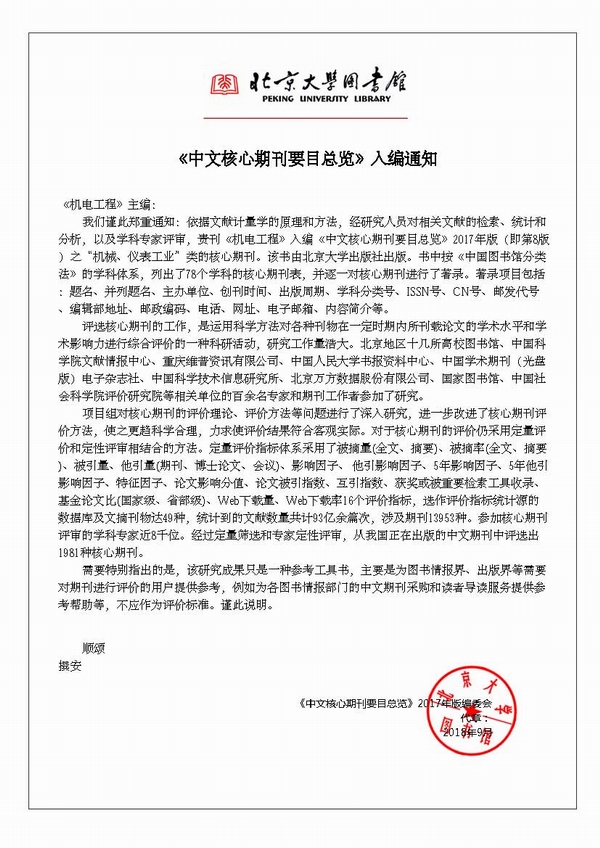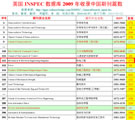
Founded in 1971 >
Chinese Sci-tech Core Periodicals >
British Science Abstracts (SA, INSPEC) Indexed Journals >
United States, Cambridge Scientific Abstract: Technology (CSA: T) Indexed Journals >
United States, Ulrich's Periodicals Directory(UPD)Indexed Journals >
United States, Cambridge Scientific Abstract: Natural Science (CSA: NS) Indexed Journals >
Poland ,Index of Copernicus(IC) Indexed Journals >
International Standard Serial Number:
ISSN 1001-4551
Sponsor:
Zhejiang University;
Zhejiang Machinery and Electrical Group
Edited by:
Editorial of Journal of Mechanical & Electrical Engineering
Chief Editor:
ZHAO Qun
Vice Chief Editor:
TANG ren-zhong,
LUO Xiang-yang
Tel:
86-571-87041360,87239525
Fax:
86-571-87239571
Add:
No.9 Gaoguannong,Daxue Road,Hangzhou,China
P.C:
310009
E-mail:
meem_contribute@163.com
Abstract: Aiming at the problems of large scheduling scale, and difficulty in coordinating multiple objectives in distributed flexible job shop multi-objective scheduling problem, an improved non-dominated sorting genetic algorithm II (NSGA2) was proposed. The multi-objective scheduling problem of distributed flexible job shop was solved. Firstly, a distributed flexible job shop multi-objective scheduling model was established, and the optimization goals were minimizing completion time, minimizing machine load, and minimizing machine energy consumption. Then, a dynamic dual-population search strategy based on Pareto hierarchy of dominance relationships was designed. A population partitioning mechanism was devised to replace the traditional selection operation, and each population executed different search strategies. A local search strategy was specifically designed for the key factories in the second population. The state space and the reward functions for Q-learning were based on Pareto hierarchy of dominance relationships. The Q-learning was used to adaptively adjust the proportion of the dual populations. Finally, the effectiveness of the algorithm improvements was verified through extended benchmark examples, and compared with other algorithms to verify the effectiveness of the improvement. The research results indicate that the improved NSGA2 algorithm, which employing a dynamic dual-population search strategy, is able to effectively maintain population diversity and is less prone to becoming trapped in local optima, thereby enhancing the overall solution quality of the algorithm. Comparing with the NSGA2 algorithm, the diversity evaluation hypervolume of the improved algorithm is increased by 15.34% on average, and the convergence evaluation index inversion generation distance is increased by 76.37% on average. It proves the superiority of the proposed algorithm in solving multi-objective scheduling problems in distributed flexible job workshops.
Key words: flexible job skop scheduling problem (FJSP); distributed multi-objective flexible job shop; solution of multi-objective scheduling problem in workshop; Pareto rank; improved non-dominated sorting genetic algorithm II (NSGA2); dynamic dual population search strategy; Q-learning








